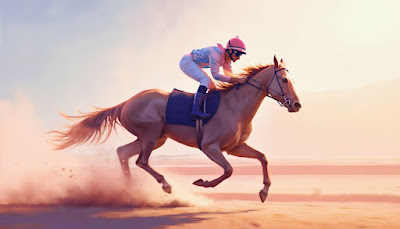Irish horse racing has always been about more than raw talent. It’s about judgement. Timing. Patience. The quiet confidence that comes from doing things the right way, year after year. For punters, understanding trainers is often more important than understanding horses. Patterns repeat. Habits reveal themselves. And value appears when you know where to look — especially in a landscape where modern betting tools, offers, and Free Bets in Ireland sit alongside centuries-old racing instincts.
Here are five leading Irish horse trainers worth a bet, not just because they win, but because of how and when they do it.
1. Aidan O’Brien – Precision, Not Just Power
Aidan O’Brien is the obvious name, and that’s precisely why he’s often misunderstood.
Yes, he trains champions. Yes, he dominates the Classics. But the real betting insight lies in placement, not reputation. O’Brien rarely wastes a run. Horses are entered with intent, even when they’re not fully wound up. When the market drifts but the race conditions suit perfectly, that’s often when Ballydoyle strikes.
Novel pointer: watch second-string runners at unfashionable tracks. They’re rarely accidental.
2. Willie Mullins – Master of the Big Picture
Willie Mullins is synonymous with National Hunt excellence, but betting him blindly is a mistake.
The true edge comes from understanding his targets. Mullins trains with seasons in mind, not weeks. Horses can look ordinary until suddenly everything aligns — trip, ground, jockey, and timing.
His novices, in particular, are worth close attention when stepping up in class after an educational run. Mullins doesn’t rush them. When they peak, they peak hard.
Novel pointer: don’t fear long absences — Mullins excels with fresh horses.
3. Dermot Weld – Timing Over Volume
Dermot Weld is not about numbers. He’s about moments.
His runners are carefully chosen, sparingly campaigned, and often underestimated in the market. Weld has long mastered the art of bringing a horse to peak fitness exactly when it matters, whether at the Curragh, Royal Ascot, or abroad.
When a Weld horse appears in a race it seems “too good” for on paper, pay attention. He rarely misplaces one.
Novel pointer: Weld’s runners after a quiet spell are often primed, not cold.
4. Gordon Elliott – Controlled Aggression
Gordon Elliott trains winners everywhere. Big meetings. Small tracks. Midweek cards. That breadth can overwhelm casual punters, but for the informed bettor, it’s an opportunity.
Elliott is exceptional at finding the right race for the right horse. His handicap entries are often more revealing than his Grade 1 runners. A subtle drop in class or a switch in jockey can signal intent.
He’s also fearless. When he thinks a horse is well-handicapped, he runs it.
Novel pointer: track Elliott horses returning to favoured venues — memory matters.
5. Joseph O’Brien – Intelligence in Motion
Joseph O’Brien has quietly become one of the most adaptable trainers in Ireland.
Equally effective on the Flat and over jumps, his strength lies in flexibility. He’s willing to experiment, to travel, to try unconventional routes. Horses improve under him because he listens to them.
For bettors, this means opportunity. Markets don’t always keep up with his thinking. When a Joseph O’Brien horse steps into a race slightly “off narrative,” it’s often because a new angle is being tested.
Novel pointer: improvement often comes at the second attempt over a new trip or discipline.
Why Trainers Matter More Than Ever
In an era of speed figures, sectional times, and endless data, it’s easy to forget that racing is still human.
Trainers decide when a horse runs. Where it runs. And why. Understanding those decisions — rather than just the form — is where betting moves from guessing to insight.
Irish trainers, in particular, operate within a culture that values patience and purpose. When they strike, it’s rarely by accident.
For those willing to look beyond headlines and into habits, these five trainers don’t just win races.
They tell stories. And for the bettor who listens closely, those stories are often worth a bet.
Photo: Image by freepik










